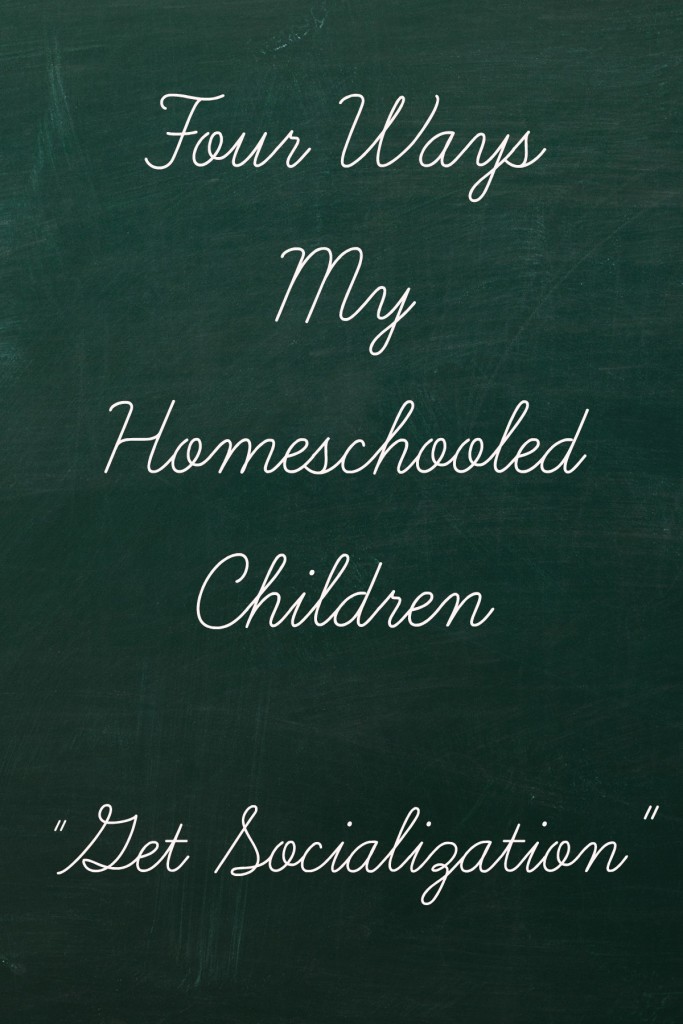Homeschooled Children and Socialization
What About Socialization?
I’ve heard from many homeschooling parents. That question that almost always arises when they decide to homeschool: “what about socialization?”
Most of the time, I think people really mean “what about socializing?” As in, “how will they meet people and make friends?” Though I know some mean, “how will they learn their place in society?”
I’ve given these questions a lot of thought, but first I want to reflect on something I read before homeschooling was even on my radar.
Thinking Differently About Socialization
Several years ago, I read the book Little Women for the first time. If you don’t know, it’s a classic novel about a family with four sisters and their day-to-day happenings. One thing I realized while reading it, is our culture has not always been like the one I grew up in. Families were closer-knit. There wasn’t always compulsory education in our country. Children weren’t customarily sent off to school outside their home. And sometimes (like in winter), they didn’t get that much interaction with other people their own age.
What I learned, is there are other ways a child can learn how to fit into society besides being at school for 6-8 hours a day, making friends with similar-aged children, and being involved in extra-curricular activities with (you guessed it) more children their own age.
Remembering that made me more confident that my children would not suffer socially as homeschoolers! They weren’t “doomed” to be socially awkward due to lack of public education!
Four Ways We Get Socialization
Right here at home!
We know families who are always on the go. We are not one of those families. I have nothing against getting out and interacting with the world on a daily basis, I simply prefer to be home much of the time. But this works for us! My children are learning manners, and trust me when I say we have plenty of learning opportunities amongst siblings every day. My seven year old is learning that he is bigger than his siblings and must treat them differently than he would an older child. He’s learning gentleness. My littler ones are learning to assert themselves with their older siblings. Plenty of time at home means plenty of time to mold their behavior; plenty of time to prepare to be out in the world.
Our church community
My husband and I have been members of our church for 12 years. What that means for our family, is our children were basically born into this family of believers. People come and go, naturally, but there are people they have known their whole lives too. They have friends they’ve known since birth in their children’s church classroom. There are new children they learn to become friends with. We typically have a Sunday meal together following our church service, so they get to wait in line for their food and interact with the fellow members serving the food. They sit at tables with other families and eat their meal. They see examples of people serving all the time in different capacities. They themselves serve in age-appropriate ways as well. We play together, pray together, and we work together (and work through conflicts together). They are exposed to people from various cultures and generations every week.
Our local community
We have a twice-weekly library trip (most weeks). We’ve lived in our community for four years now. Over time, they have gotten to know people at our library. Just about every single library worker who works in the public eye knows each of our children individually by name and vice versa. We’ve gone to classes there for as long as we’ve lived here. My school age children have asked the workers for help finding materials; they interact with them when it’s time to check out (I rarely let them use the automated check out). My older son has taken karate classes at our local multi-generational center. We shop at local businesses and interact with people there too.
Homeschool groups
This is way down on the list, because really it isn’t a huge part of our personal “socialization experience”. The idea behind most homeschool groups is to gather like-minded homeschoolers and provide support and interaction with other homeschooled students. We have a group that took us more than a year to find, and at times have met up with them for various events. We love getting together with them, and our children have had positive experiences with the children they have met and played with. I imagine as they get older, and their interests more defined (and the desire arises to interact with others who share similar interests), that a homeschool group will prove to be invaluable. Right now, it’s just for fun. And they look forward to seeing the friends they’ve met up with in the past.
Raising Confident and Polite Homeschoolers
That may or may not sound like much, but I’ve heard many people remark on how confident and polite my children are. And this from people who are around children all the time, so in my mind, it means that much more. After all (like in my own case) one can attend public school for their entire educational journey, and still come out feeling socially awkward (yes, I did. And I think it wasn’t until I had my first job and became a member of my church that some of that awkwardness faded away). I think it all depends on how intentional parents are with their children (and of course the child’s temperament).
What do you think? Are you a homeschool parent who answers the socialization question frequently? Share your experience in a comment!
Becky is a wife of eight years and stay at home mom to three young children. She aspires to encourage women in Biblical truth on her blog, Happy Christian Home









Becky,
Great post on answering the criticism and blowing up the myths associated with homeschooling. I only see it getting better as the homeschool program grows.
Donna Perugini recently posted..Homeschooled Children and Socialization
Thank you!
As a parent, you make decisions based on what you believe is fundamentally right and best for your children. I appreciate your candor in addressing the socialization question for which I myself have asked parents because I have encountered children who have been homeschooled who have not been socialized well and I have encountered others who have been. At the end of the day, we have been called to be lights pointing others to Christ wherever we go. We should always ensure that our motives are pure in all that we do, including that of homeschooling. It should never be us versus them.
Kim recently posted..It Is Well – Encouragement for the Soul
Hi Kim! I certainly didn’t mean to imply an “us vs. them” mentality in my post. I absolutely agree that we are to point others to Christ. The Bible teaches us that we are to teach and take responsibility for our children, and doesn’t clearly address the schooling choices that we have today. I know parents of public schoolers who definitely take responsibility for their own child’s socialization, so not saying that homeschooling is the only way to do that by any means. I just wanted to address anyone who has that question, as I know some are genuinely concerned and some even frightened by the prospect of a child who isn’t in school to learn certain aspects of fitting into society.
Thanks for your comment!
Becky recently posted..2014- That’s a Wrap!
Very well stated. I’ve been homeschooling for 5 years now, and get this question all the time. It frustrated me at first, but I realized that most of the time, people are just curious and want to know how all this homeschooling thing works. For much of the public, all they know is life in the school system, so to do something so different drives others to wonder.
Typically when I get this question, I answer it with this question: what do you mean? I try to dig deeper with the person seeking more information, because in doing so they almost always answer their own question. I typically don’t have to do much talking, it’s just a question to get them thinking more about this idea of socializing children. Great points-thanks for sharing! 🙂
Caroline @ Anchored In His Grace recently posted..Parenting Tip-O-The Day: Remember This One Thing
Caroline, that is a great approach: asking them what they mean, because I’ve found that people mean all kinds of different things when they ask that question! Thanks for stopping by! 🙂